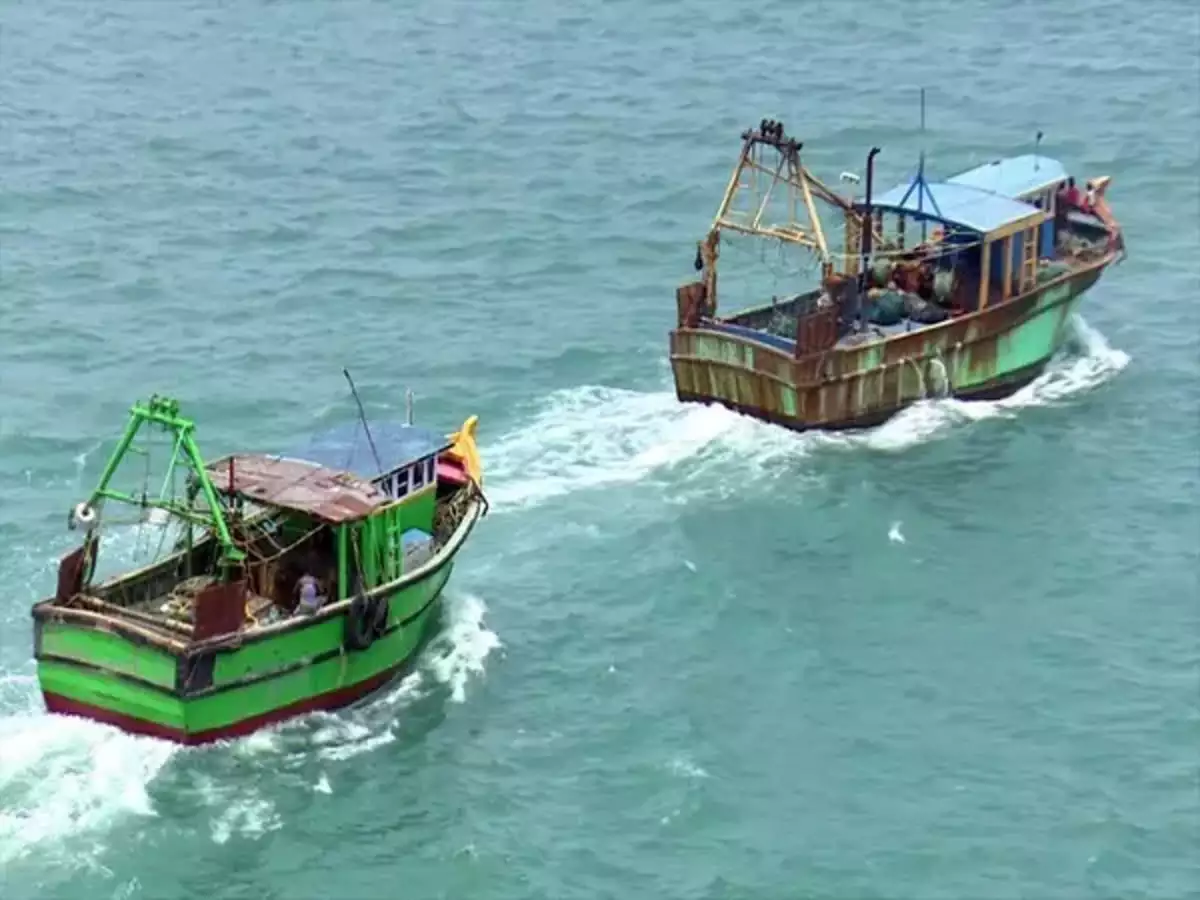A record number of Indian fisherfolk were arrested by Sri Lanka in 2024 amid depleting fish stocks in Indian waters
Ashoka*, a 23-year-old fisherman from Pamban Island at the southernmost tip of India, shivered in fear as Sri Lankan Navy officers boarded his boat. He watched helplessly as the officers beat and pushed his fellow fishermen with guns, iron rods, and wooden logs. Arrested and chained together, the fishermen were taken to a navy camp in Karainagar, Sri Lanka, enduring harsh treatment before being released a month later, reported aljazeera.com.
A Record Year for Arrests and Confiscations
In 2024, a record 535 Indian fishermen were arrested by Sri Lanka, nearly double the previous year, according to Indian government data. As of late November, 141 Indian fishermen remained in Sri Lankan jails, and 198 trawlers had been confiscated. These arrests, often accompanied by allegations of mistreatment, have fueled tensions between the two nations. Protests have erupted in Tamil Nadu, with fishermen demanding stronger action from New Delhi to ensure their security.
Declining Catch and Survival on the Border
The Gulf of Mannar, a rich fishing ground in the Indian Ocean between India and Sri Lanka, has long been a lifeline for fishermen. However, depleting fish stocks in Indian waters due to climate change, plastic pollution, and decades of mechanized trawling have forced Indian fishermen to cross into Sri Lankan territory. With rocky seabeds on the Indian side and only a narrow fishing area available, the richer waters just across the border are vital for their survival.
“That’s our fishing ground,” says P Jesuraja, president of a fishermen’s association in Tamil Nadu. “Fishermen cross the border knowing well that they might get arrested or even die. Without fish, they cannot survive.”
A History of Policy Missteps
-
Experts point to policies from the 1950s, when India encouraged trawling to boost fishermen’s incomes. This practice has decimated coral reefs and marine ecosystems, leading to today’s depleted fish stocks
-
Meanwhile, Sri Lanka, with its shallower waters and a wider continental shelf, has a richer marine population, partly due to its ban on trawling. Sri Lankan fishermen fear that Indian trawlers in their waters will replicate the ecological damage seen in India
Economic Pressures and Climate Challenges
Indian fishermen face multiple challenges, including a U.S. ban on Indian wild-caught shrimp, rising diesel costs, and falling prawn prices. Climate change has further complicated their livelihoods. Erratic rainfall, increasing cyclones, and plastic waste in the sea have sharply reduced fish populations. Fisherman Marivel from Pamban Island laments, “Ten years ago, we caught only fish. Now, the amount of plastic waste is greater than the fish.”
Women from fishing communities have turned to seaweed collection as an alternative income source, but even this practice is under threat from rising sea temperatures and coral erosion. “We used to collect 20-25kg of seaweed daily. Now, we’re lucky to get 3kg,” says Marie, a seaweed collector.
A Call for Local Solutions
Gayatri Usman, head of Kadal Osai, a community radio station in Rameswaram, advocates for awareness and local action against climate change. “Our motto is: think globally and act locally,” she says. The station raises awareness through folk tales and songs while incentivizing sustainable practices like turtle conservation.
Despite these efforts, the future of fishing communities remains bleak. “We don’t want our children to be fishermen or marry a fisherman,” says Marivel, reflecting the growing despair within the community.
***********************************************************
Readers
These are extraordinary times. All of us have to rely on high-impact, trustworthy journalism. And this is especially true of the Indian Diaspora. Members of the Indian community overseas cannot be fed with inaccurate news.
Pravasi Samwad is a venture that has no shareholders. It is the result of an impassioned initiative of a handful of Indian journalists spread around the world. We have taken a small step forward with the pledge to provide news with accuracy, free from political and commercial influence. Our aim is to keep you, our readers, informed about developments at ‘home’ and across the world that affect you.
Please help us to keep our journalism independent and free.
In these difficult times, running a news website requires finances. While every contribution, big or small, will make a difference, we request our readers to put us in touch with advertisers worldwide. It will be a great help.
For more information: pravasisamwad00@gmail.com








